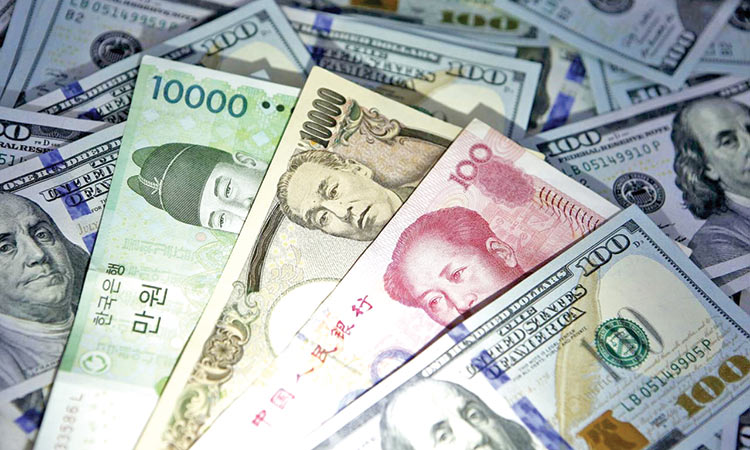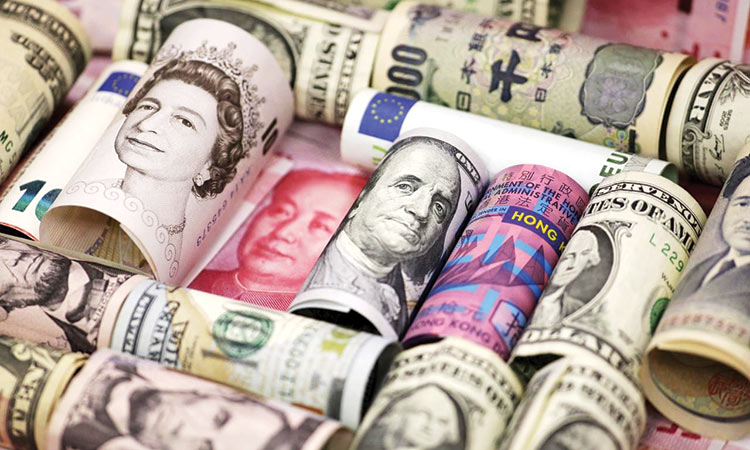Safe-haven currencies in demand, yen hits 3-month high vs dollar

The dollar was treading water versus six major currencies and was slightly weaker against the euro.
The Swiss franc, another safe currency, was trading flat too, though close to the four-month high of 1.0824 it reached against the euro on Friday.
The dollar was treading water versus six major currencies and was slightly weaker against the euro, with euro/dollar last up 0.1 per cent at $1.1167.
Implied volatility gauges in the most traded currency pair, on the other hand, were relatively calm, suggesting investors are not yet fleeing to add protection to their portfolios by buying currency options.
Currencies sensitive to global risk appetite were weaker, including the Australian dollar, New Zealand dollar and Swedish crown.
“Iran is almost certainly to respond in some scale, scope and magnitude,” said Lee Hardman, currency analyst at MUFG.
Therefore “market participants are likely to remain nervous until there is more clarity over how geopolitical tensions between the US and Iran will proceed,” Hardman said, noting that geopolitical tensions could hurt global economic growth, especially if the price of oil increases.
So far, however, oil-related currencies such as the Canadian dollar, Norwegian crown and Russian rouble have not yet strengthened even though Brent crude continued last week’s rise and topped $70 on Monday for the first time since September.
Elsewhere, the British pound was trading flat at $1.3076 and at 85.44 pence against the euro ahead of a crucial week when British lawmakers are due to reconvene to debate the EU divorce deal Prime Minister Boris Johnson has agreed with Brussels.
The safe-haven yen touched a three-month high on Monday. “I think markets are going to remain pretty nervous on potential Iranian retaliation and what Trump might do next,” said National Australia Bank’s head of FX strategy, Ray Attrill.
It handed back most of those gains later though, even as gold gained and stocks slid.
“It’s a wait-and-see but it’s very tense,” said Sean MacLean, research strategist at Pepperstone, a brokerage in Melbourne. The Swiss franc rose 0.1 per cent to 0.9712 francs per dollar, while the euro and pound were steady.
The dollar crept higher against riskier currencies such as the Aussie and the kiwi. Against a basket of currencies the greenback steadied at 96.852.
The Australian dollar/yen pair - a gauge of risk sentiment because the Aussie is an export-oriented currency compared with the yen’s safety status, has been among the biggest movers, with the yen rising 1.1 per cent since Friday.
Meanwhile the yuan fell marginally on Monday as investors awaited for more concrete details in the Sino-US trade deal scheduled for mid-month. Safe-haven currencies and gold gained traction. Global markets are all focusing on safe-haven currencies, that’s a bit of a blow to sentiment in the renminbi,” said a Shanghai-based trader at a Chinese bank. At midday, the onshore yuan traded 0.1 per cent weaker at 6.9718 per dollar while the offshore yuan was little changed at 6.9697 per dollar.
Sterling held around $1.31 on Monday as tensions encouraged buying of safe-haven currencies and curbed demand for the likes of the British pound, while investors awaited a parliamentary debate on Brexit legislation.
Investors remain cautious about political uncertainty as Britain prepares to leave the European Union and begins negotiations with the EU over their future trading relationship.
The UK parliament returns on Tuesday and will debate the Brexit bill, which includes a clause ruling out any extension of the transition period for trade talks beyond December 2020. The pound rose 0.3 per cent to $1.3113 in early trading on Monday but remains below levels of above $1.32 seen last week.
Sterling fell Friday after the United States assassinated the Iranian general Qassem Soleimani, panicking investors and boosted demand for safe-haven currencies, including the dollar.
Against the euro, the pound rose 0.1 per cent to 85.26 pence. Investors are also eyeing a final December reading for the Purchasing Managers Index, due at 0930 GMT. Economists polled by Reuters expect a reading of 49.1.
“Today’s December services PMI is expected to be unrevised from the provisional reading. The provisional PMIs for January (out Jan 24) will be more interesting as they will shed some light on the potential for a rebound in activity early in 2020 as political uncertainty cleared following the election,” RBC Capital Markets currency strategist Adam Cole said.
Reuters






